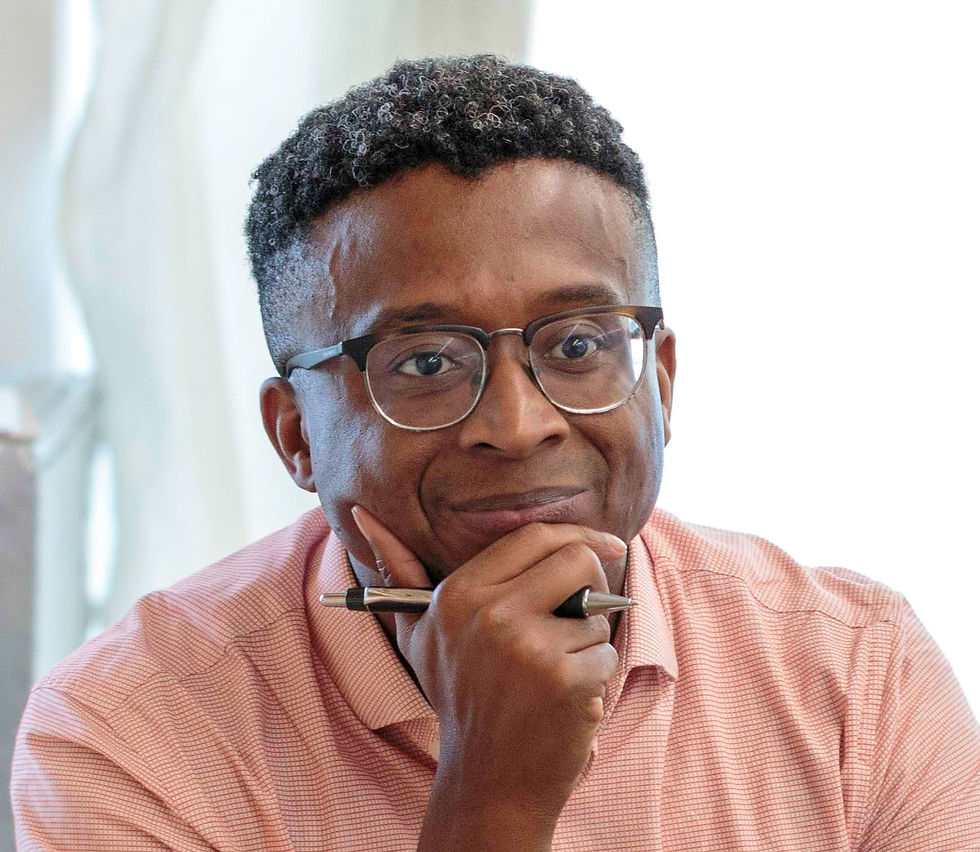Teaching Writing: Sessions and Conversations at Spalding’s Spring 2021 Residency
- elichvar
- May 6, 2021
- 3 min read
by Lynnell Edwards, Associate Programs Director
Teaching writing at the college level is a richly rewarding but often complicated experience for both students and teachers. Questions of classroom management and syllabus design are all made more complex by the diversity of student voices, opinions, and experiences, as well as the vast and sometimes conflicting pedagogical theories and multiple models for best practices. Professors of both creative and expository writing wrestle with fundamental questions about the entire premise of the endeavor:
How can you grade someone’s opinion? How personal is too personal? Isn’t whether you like something pretty subjective? How do you even teach creativity? Why does it have to be in this format? Why and how does reading matter in a writing class?
In the School of Writing’s upcoming spring residency, we have scheduled several opportunities for students who wish to explore teaching writing in college—both expository and creative—when they graduate.
I’ll be giving a lecture on teaching first-year writing, a class almost universally required of college students. This workhorse of the curriculum can get a bad rap for being overly concerned with grammatical correctness and artificial academic formats, but the truth is it’s often the most important course students take in their first year. This is the class where many students first recognize something like their voice in writing, and where they discover the power of the written word to express strong ideas and emotions. In first-year writing classes, students have opportunities for free-ranging discussions about important issues of the day and are given vastly more personal feedback than they get in their lecture hall courses. The first-year writing course at a large university may be the only class where the instructor knows the student’s name personally. I have a long history of teaching this course and take pride in the multitude of students who have learned how to support a thesis in my classes and have trusted me with intimate essays about their hardships and triumphs. In my lecture I’ll briefly overview the common goals of first-year writing and some of the best practices for managing the classroom and creating a syllabus (and getting a job teaching first-year writing).

School of Writing students interested in exploring the undergraduate introduction to creative writing class have enrolled in the pedagogy workshop with faculty member Douglas Manuel. In preparation, students will read selections from both Eric Bennett’s Workshops of Empire and Felicia Rose Chavez’s The Anti-Racist Writing Workshop: How to Decolonize the Creative Classroom. Manuel explains that these works will “ground and guide our approach and commenting techniques” and that “this workshop will provide both practical classroom management and establish precedents for an inclusive, anti-racist model for workshop.”
This unique seminar-style workshop gives participants the opportunity to be both student and teacher while reflecting on best practices with their peers across genres and under the guidance of an expert classroom teacher. As Manuel further explains, “Workshop participants will have opportunities to be workshopped in a genre outside their concentration and to try out a creative lesson plan they’ve developed in our class. This workshop will strive to give participants useful guidance when it comes to classroom management orientation and discussion about how to provide instruction for undergraduates on close-reading skills, analysis, recognition of literary gestures, elements, and terms, the generation of new and innovative material, and revision strategies.”

Finally, all students and faculty attending residency will also read the excerpt from Chavez’s book titled “Fostering Engagement, Mindfulness, and Generosity,” available in the first issue of Good River Review. Chavez will deliver a plenary lecture titled “The Anti-Racist Writing Workshop-in-Action” addressing new paradigms for the anti-racist pedagogy in the creative writing classroom. As she describes it, her lecture will “survey the highlights of an anti-racist creative writing pedagogy, empowering students to claim ownership of not only their work but their working relationships with professors, mentors, and peers. The hour-long session offers specific, practical takeaways to reconceptualize critique and encourage everyday anti-racist action.”
Though this cluster of teaching-intensive sessions and conversations are only first steps on the path to becoming an inclusive and innovative writing teacher, we are excited that our community will have these opportunities to engage with the foundational questions about best practices and new paradigms for teaching writing.
Lynnell Edwards is associate programs director for the School of Creative and Professional Writing, where she is also faculty in poetry and professional writing. Her five collections of poetry include, most recently, This Great Green Valley (2020); Kings of the Rock and Roll Hot Shop, Covet, The Highwayman's Wife, and The Farmer's Daughter. Her book reviews, poems, and short stories have been included in numerous journals including Pleaides, New Madrid, American Book Review, Sou'wester, and Waccamaw.